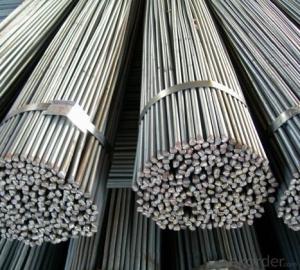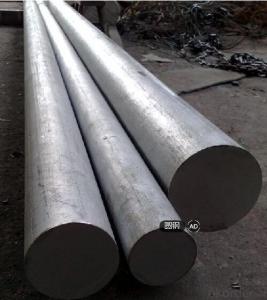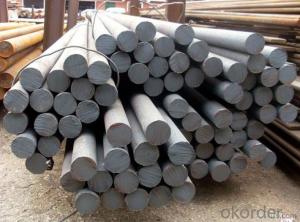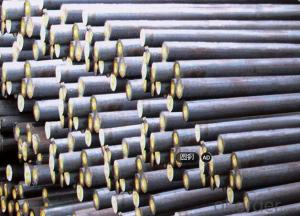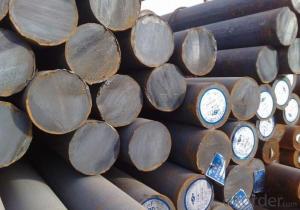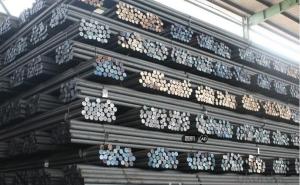Hot Work Die Steel Round Bar Grade H13 with Competitive Price
- Loading Port:
- Shanghai
- Payment Terms:
- TT OR LC
- Min Order Qty:
- 3 m.t.
- Supply Capability:
- 100000 m.t./month
OKorder Service Pledge
OKorder Financial Service
You Might Also Like
Item specifice
Hot Work Die Steel Round Bar Grade H13 with Competitive Price
Details Information of Hot Work Die Steel Round Bar Grade H13 with Competitive Price
| Name | Hot Work Die Steel Round Bar Grade H13 with Competitive Price |
| Shape | Round Bar/Square Bar/Flat Bar/Plate/Wire |
| Standard | GB/ASTM/SAE/AISI/DIN/JIS/EN/BS |
| Surface Treatment: | Black/Peeling/Polished/Machined |
| Delivery Condition: | Hot Rolled or Forged/Peeled or Black Surface |
| Test | SGS/UT 100% Elements Testing |
| Certificate: | ISO/Mill Certificate |
| Service: | 24 hours online service / |
| more than 20 years trading and manufacture | |
| Quality Assurance: | the third party inspection, such as SGS, BV, TUV…etc. is acceptable |
| Packaging Details: | Seaworthy Packaging or as per customer's packing instruction |
| Carbon structure round bar | Q195 Q235A Q235B 10# 20#-55# S45CB |
| Low alloy high strength round bar | Q345A/Q345C/Q345D Q345B Q345E |
| Alloy structure round bar | SAE51B20 20Cr 40Cr 40CrV 20CrMo/30CrMo/35CrMo/42CrMo 20CrMoA/30CrMoA/35CrMoA/42CrMoA/42Cr ML20CrMo/ML30CrMo/ML35CrMo/ML42CrMo B7/SCM435-440 20MnTiB 20CrMnMo 20CrMoH 42CrMoH 40MnB/40MnBH 30Mn2-40Mn2 27SiMn 50CrVA 30CrMnTi |
| Pinion steel | 20CrMnTi 20CrMnTiH 20CrMnTiHCS/20CrMnTiHLD Q20CrMnTi-1/Q20CrMnTi-2 |
| Sucker rod | 20-35CrMoA |
| Free-cutting steel | GT1215S |
| Spring steel | 60Si2MnA 65Mn |
| Ball bearing steel | GCr15 |
Chemical Composition of Hot Work Die Steel Round Bar Grade H13 with Competitive Price
| C | Si | Mn | P | S | Cr | Ni | Cu |
| 0.17-0.24 | 0.17-0.37 | 0.35-0.65 | ≤0.035 | ≤0.035 | ≤0.25 | ≤0.25 | ≤0.25 |
| Tensile strength (σb/MPa) | Yield strength (σb/MPa) | Elongation (δ5/%) |
| ≥410(42) | ≥245(25) | ≥25 |
Company Introduction of Hot Work Die Steel Round Bar Grade H13 with Competitive Price
CNBM International Corporation is the most import and export platform of CNBM group(China National Building Material Group Corporation) ,which is a state-owned enterprise, ranked in 270th of Fortune Global 500 in 2015.
With its advantages, CNBM International are mainly concentrate on Cement, Glass, Iron and Steel, Ceramics industries and devotes herself for supplying high quality series of refractories as well as technical consultancies and logistics solution.
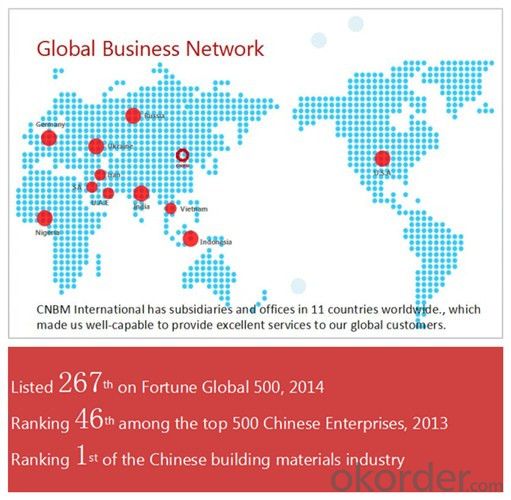
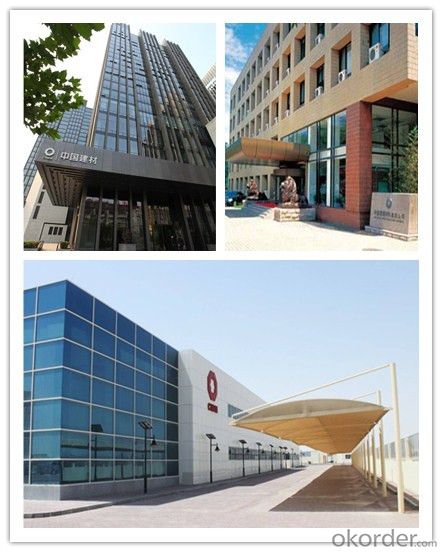
Certificates of Hot Work Die Steel Round Bar Grade H13 with Competitive Price
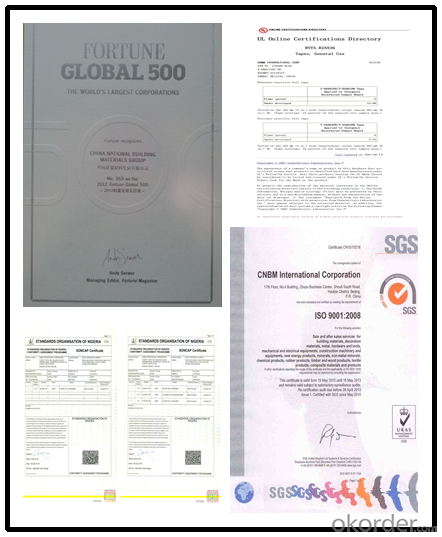
Packaging & Delivery of Hot Work Die Steel Round Bar Grade H13 with Competitive Price
Packaging Detail | Sea worthy packing /as per customer's packing instruction |
Delivery Detail | 15 ~ 40 days after receiving the deposit |
Products show of Hot Work Die Steel Round Bar Grade H13 with Competitive Price
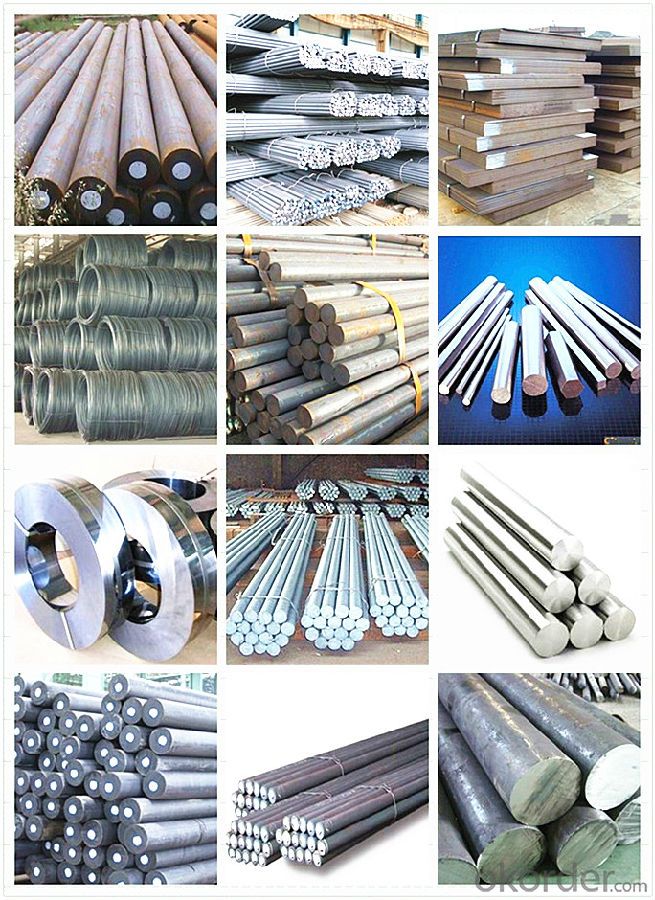
FAQ
Are you a trading company or manufacturer? | Manufacturer |
What’s the MOQ? | 3 metric ton |
What’s your delivery time? | 15-35 days after downpayment received |
Do you Accept OEM service? | Yes |
what’s your delivery terms? | FOB/CFR/CIF |
What's the Payment Terms? | 30% as deposit,70% before shipment by T/T |
Western Union acceptable for small amount. | |
L/C acceptable for large amount. | |
Scrow ,Paybal,Alipay are also ok | |
Why choose us? | Chose happens because of quality, then price, We can give you both. Additionally, we can also offer professional products inquiry, products knowledge train (for agents), smooth goods delivery, excellent customer solution proposals. |
What's your available port of Shipment? | Main Port, China |
What’s your featured services? | Our service formula: good quality+ good price+ good service=customer's trust
|
Where are your Market? | Covering more than 160 countries in the world |
- Q:How does special steel perform in low-temperature environments?
- Special steel, also known as low-temperature steel, is specifically designed to perform exceptionally well in low-temperature environments. One of the key features of special steel is its ability to maintain its strength and toughness even at extremely low temperatures. This is crucial in industries such as oil and gas, where equipment and structures are exposed to extreme cold conditions. When exposed to low temperatures, regular steel tends to become brittle and lose its mechanical properties, making it prone to cracking and failure. However, special steel is formulated with specific alloying elements, such as nickel, chromium, and molybdenum, which enhance its low-temperature performance. These alloying elements help to prevent the formation of brittle phases, which allows the steel to retain its toughness and ductility even at sub-zero temperatures. Special steel is extensively used in cryogenic applications, where temperatures can reach as low as -196 degrees Celsius (-320 degrees Fahrenheit). It is commonly employed in the construction of cryogenic storage tanks, liquefied natural gas (LNG) carriers, and other components that come into contact with extremely cold fluids or gases. In low-temperature environments, special steel not only maintains its mechanical properties but also exhibits excellent resistance to corrosion. This is vital, as low temperatures can exacerbate corrosion issues in many materials. The corrosion resistance of special steel is attributed to its high nickel content, which forms a protective oxide layer that prevents the steel from corroding, even in harsh conditions. Overall, special steel is specifically engineered to withstand the challenges posed by low-temperature environments. Its ability to retain strength, toughness, and corrosion resistance makes it an ideal choice for various industries operating in extreme cold conditions.
- Q:How is special steel used in the production of springs?
- Special steel is used in the production of springs due to its excellent mechanical properties. It provides the necessary strength, durability, and elasticity required for springs to function effectively. The unique composition and heat treatment of special steel enable springs to withstand high levels of stress and repetitive loading, ensuring their longevity and reliability in various applications such as automotive, aerospace, and machinery industries.
- Q:What are the different forming processes for special steel?
- There are several different forming processes for special steel, including forging, casting, extrusion, and rolling.
- Q:How is high-temperature tool steel used in the production of hot work tools?
- High-temperature tool steel is used in the production of hot work tools due to its exceptional heat resistance and strength properties. It can withstand the high temperatures generated during hot work processes such as forging, extrusion, and die casting, without losing its hardness or experiencing deformation. This steel is used to manufacture tooling components like dies, punches, and inserts, ensuring their longevity and performance in extreme heat conditions.
- Q:How does stainless steel contribute to architectural design?
- Stainless steel contributes to architectural design by providing a durable and versatile material that can be shaped into various forms and structures. Its resistance to corrosion, high strength, and ability to withstand extreme weather conditions make it suitable for both interior and exterior architectural applications. Stainless steel's aesthetic appeal, with its sleek and modern appearance, adds a touch of elegance to buildings, while its reflective properties can enhance natural lighting in spaces. Additionally, stainless steel's sustainable and eco-friendly characteristics further contribute to architectural design by promoting longevity, recyclability, and reduced maintenance requirements.
- Q:Can special steel be used in the manufacturing of firearms?
- Special steel is unquestionably applicable for firearm production. In truth, it is frequently favored for this purpose owing to its distinct properties that render it apt for enduring high temperatures, pressures, and stress. Firearms necessitate materials that possess strength, durability, and the capability to withstand the immense forces generated during firing. Special steel alloys, such as stainless steel or heat-treated steel, provide these desired traits and are extensively employed in fabricating firearm barrels, receivers, and other crucial constituents. The incorporation of special steel in firearm manufacturing guarantees the dependability, safety, and consistent performance of these weapons in diverse conditions.
- Q:What are the main characteristics of tool steel forgings?
- Tool steel forgings possess a variety of qualities that render them highly valuable for diverse applications. Primarily, tool steel forgings are renowned for their remarkable durability and strength. They are specifically engineered to endure significant levels of stress, making them ideal for situations where toughness and resistance to wear and tear are indispensable. This strength empowers tool steel forgings to retain their shape and integrity even under extreme circumstances, such as elevated temperatures or heavy loads. Another noteworthy characteristic of tool steel forgings is their exceptional hardness. Through the process of quenching and tempering, tool steel achieves substantial levels of hardness. This technique involves heating the steel to a precise temperature and rapidly cooling it. This hardness endows tool steel forgings with remarkable resistance to abrasion, making them well-suited for activities involving cutting, shaping, and molding materials. Furthermore, tool steel forgings exhibit superb dimensional stability. Consequently, they experience minimal distortion or shrinkage when exposed to heat or pressure. This quality renders them ideal for applications that demand precision tooling. Moreover, their dimensional stability ensures that the forgings maintain their accuracy and reliability over time, a crucial aspect in industries such as manufacturing and engineering. Additionally, tool steel forgings offer excellent machinability, meaning they can be conveniently shaped, drilled, and cut to fulfill specific requirements. This versatility and adaptability enable their utilization in a wide range of applications, from forming intricate shapes to crafting elaborate designs. Lastly, tool steel forgings possess outstanding wear resistance. This characteristic enables them to retain their cutting edges and surfaces for prolonged periods, thereby reducing the need for frequent sharpening or replacement. This wear resistance proves especially advantageous in industries such as automotive, aerospace, and tool manufacturing, where longevity and efficiency are paramount. In conclusion, the primary qualities of tool steel forgings encompass exceptional durability and strength, high hardness, excellent dimensional stability, good machinability, and excellent wear resistance. These characteristics bestow tool steel forgings with immense desirability across various industries, where reliability, precision, and longevity are crucial.
- Q:What are the limitations of using special steel?
- Some limitations of using special steel include its high cost compared to regular steel, limited availability due to specific alloy compositions, and the need for specialized knowledge and equipment to work with it. Additionally, special steel may have lower ductility and toughness compared to other materials, making it less suitable for certain applications that require high impact resistance or flexibility.
- Q:What are the different methods for improving the creep resistance of special steel?
- There are several methods for improving the creep resistance of special steel. One approach is through alloying, where elements such as chromium, molybdenum, and tungsten are added to enhance the strength and stability of the steel at high temperatures. Another method is by heat treatment, which involves controlled heating and cooling processes to optimize the microstructure of the steel and improve its creep resistance. Additionally, surface treatments like carburizing or nitriding can be applied to increase the hardness and wear resistance of the steel, thereby improving its creep resistance. Lastly, proper design and engineering considerations, such as using thicker sections or incorporating reinforcements, can also contribute to enhancing the creep resistance of special steel.
- Q:What are the different manufacturing processes used for special steel?
- Special steel can be manufactured using various processes, depending on the desired properties and requirements for the final product. Some commonly used manufacturing processes for special steel include: 1. Electric Arc Furnace (EAF): Stainless steel, tool steel, and alloy steel can be produced by melting scrap metal in an electric arc furnace. This involves passing high electrical current through the electrodes to melt the metal. 2. Basic Oxygen Furnace (BOF): Carbon and low-alloy steels are commonly produced using the BOF process. It involves combining molten iron from a blast furnace with scrap metal and blowing oxygen through the mixture to remove impurities. 3. Vacuum Degassing: To eliminate impurities like hydrogen, nitrogen, and sulfur from steel, a vacuum environment is used in the vacuum degassing process. This is often employed to produce high-quality and ultra-clean special steels. 4. Continuous Casting: Molten steel is poured into a water-cooled mold in the continuous casting process, allowing it to solidify into a continuous strand. This helps in producing steel with consistent shape, size, and internal structure, and is commonly used for semi-finished products like billets, slabs, and blooms. 5. Powder Metallurgy: Special steels with specific properties, such as high strength, wear resistance, or corrosion resistance, can be produced using powder metallurgy. This process involves compacting metal powders into the desired shape and then sintering them at high temperatures to bond the particles together. 6. Heat Treatment: Modifying the microstructure and properties of special steels can be achieved through heat treatment processes like annealing, quenching, and tempering. These processes involve heating the steel to specific temperatures and then cooling it in a controlled manner to achieve desired hardness, toughness, and other mechanical properties. Each of these manufacturing processes has its own advantages and limitations, and the choice of process depends on factors such as the required type of steel, desired properties, and cost-effectiveness for a specific application.
1. Manufacturer Overview |
|
|---|---|
| Location | |
| Year Established | |
| Annual Output Value | |
| Main Markets | |
| Company Certifications | |
2. Manufacturer Certificates |
|
|---|---|
| a) Certification Name | |
| Range | |
| Reference | |
| Validity Period | |
3. Manufacturer Capability |
|
|---|---|
| a)Trade Capacity | |
| Nearest Port | |
| Export Percentage | |
| No.of Employees in Trade Department | |
| Language Spoken: | |
| b)Factory Information | |
| Factory Size: | |
| No. of Production Lines | |
| Contract Manufacturing | |
| Product Price Range | |
Send your message to us
Hot Work Die Steel Round Bar Grade H13 with Competitive Price
- Loading Port:
- Shanghai
- Payment Terms:
- TT OR LC
- Min Order Qty:
- 3 m.t.
- Supply Capability:
- 100000 m.t./month
OKorder Service Pledge
OKorder Financial Service
Similar products
New products
Hot products
Related keywords
